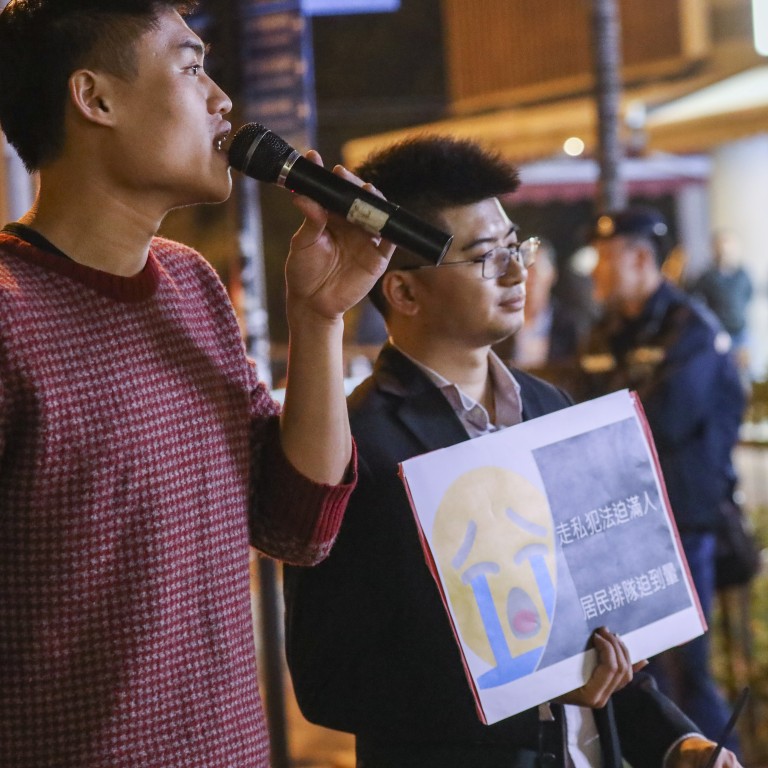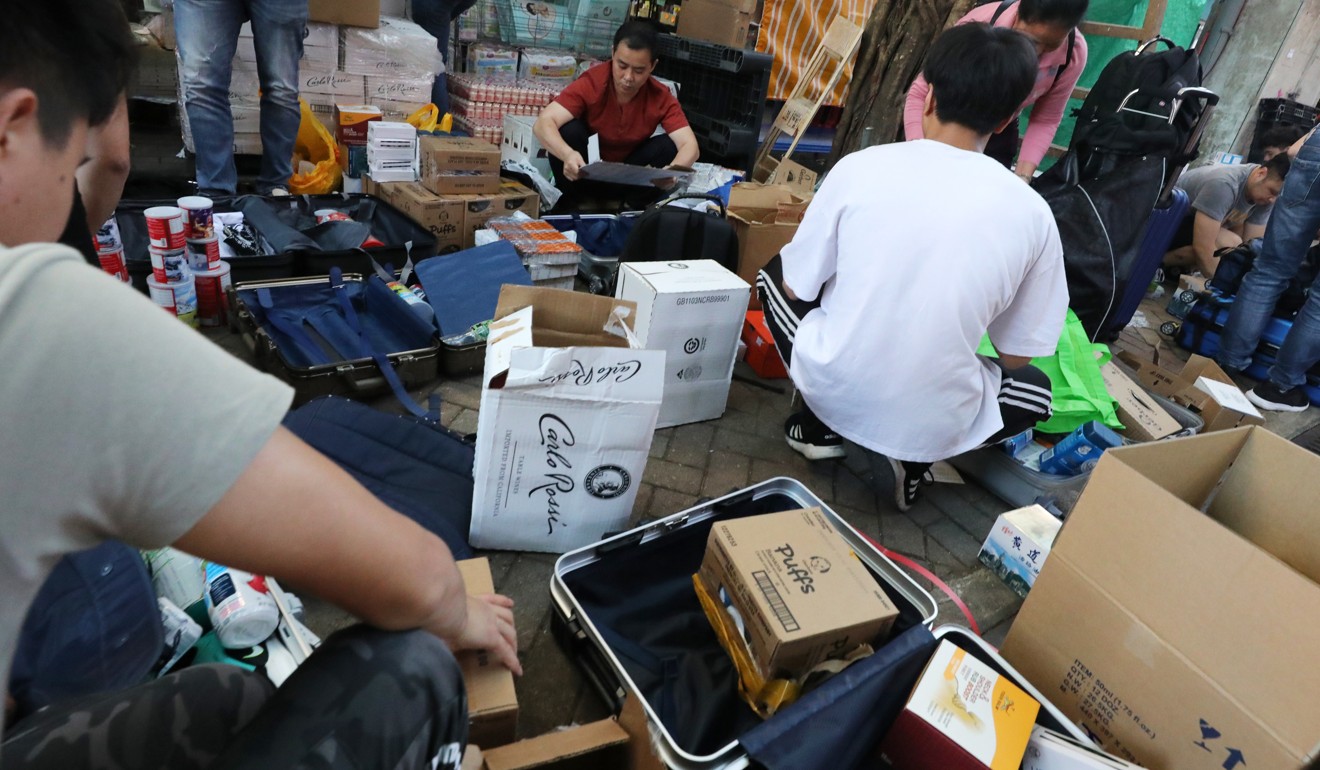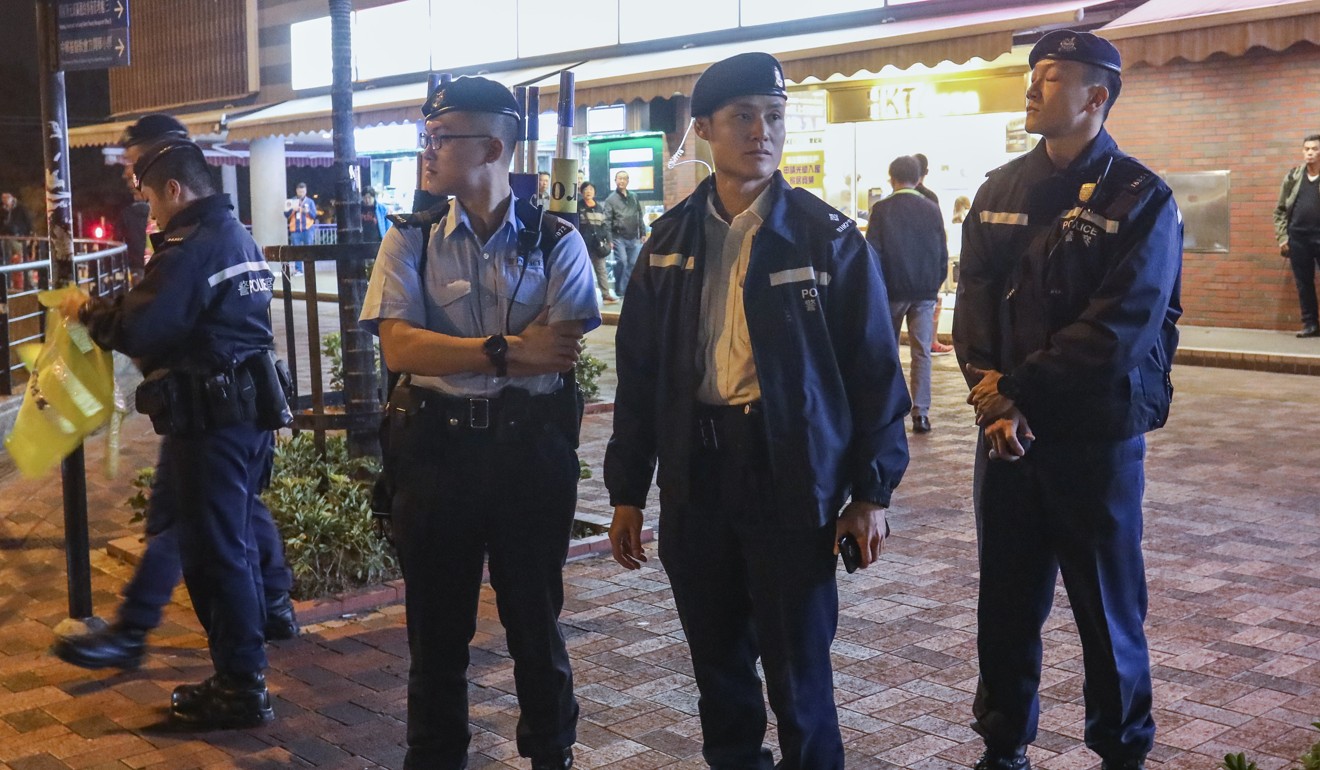
Surge in parallel trading in Tin Shui Wai sparks call for Hong Kong government action
- Police and locals note new trend in which area has become pick-up point for goods bought throughout city
- Concern groups demand seven government departments respond to letter
Concern groups in Hong Kong’s Tin Shui Wai on Saturday demanded that authorities take action against a surge in parallel trading activities observed in the area since December.
Ben Ho Wai-pan, co-organiser of a campaign against parallel traders, said: “At around 3pm or 4pm [each day], you can see some 40 parallel traders occupying busy main passages near MTR and light rail stations.”
Swift police action in Tin Shui Wai caused a drop in such activities on Thursday, but Ho insisted seven government departments, including the Immigration Department and Lands Department, did not reply to letters about joining their movement.

Ho’s campaign, comprising two concern groups, aimed to identify parallel traders on the spot and ask them to leave. These are people who buy tax-free goods in Hong Kong in bulk and resell them in mainland China to turn a profit.
The proliferation of such activities has caused tensions with locals, especially Hongkongers in border towns, as parallel importers have been accused of depleting stocks or driving up retail prices.
Number of mainlanders refused entry to Hong Kong for suspected parallel trading drops by half
“We hope that the other government departments can take action on this issue,” Ho said.
He added that the activities of traders caused disturbances for residents, sparking complaints about hygiene and blocked roads.

“The suitcases that parallel traders tow sometimes roll over the feet of passers-by,” he said.
Joe Cheung, who works for a telecommunications shop at Tin Yiu Plaza, told the Post that since December, he noticed vans stopping near the mall and unloading goods for people to pick up in suitcases.
The suitcases that parallel traders tow sometimes roll over the feet of passers-by
“The road and the bus stop were full of people,” Cheung said, adding that more than 30 traders at a time would cross the border with their stocks by taking bus route B2P to Shenzhen Bay Port.
A bus driver on the route, who only gave his surname as Wong, said the major problem centred on people with suitcases crowding bus entrances. “Even if there are still available seats on the upper deck, passengers cannot come in.”
According to Ho, parallel traders in Tin Shui Wai usually receive their goods from elsewhere in the city, and then cross the border in organised groups, mostly through the Shenzhen Bay checkpoint as other ports like Luohu are stricter.
“They are obviously not local residents, and they are not bringing the goods back for themselves. They work as illegal parallel traders,” he said, noting that the products were usually cosmetics, medicine and baby milk formula.
Shenzhen customs’ parallel trading crackdown has knock-on for local businesses
Ho said he hoped police on either side could work together more frequently to crack down on parallel trading.
On Friday morning, police said in a statement: “Following several operations, police noticed parallel traders changed their method by gathering and sorting goods in the district of Tin Shui Wai before leaving for Shenzhen Bay Port to cross the border.”
